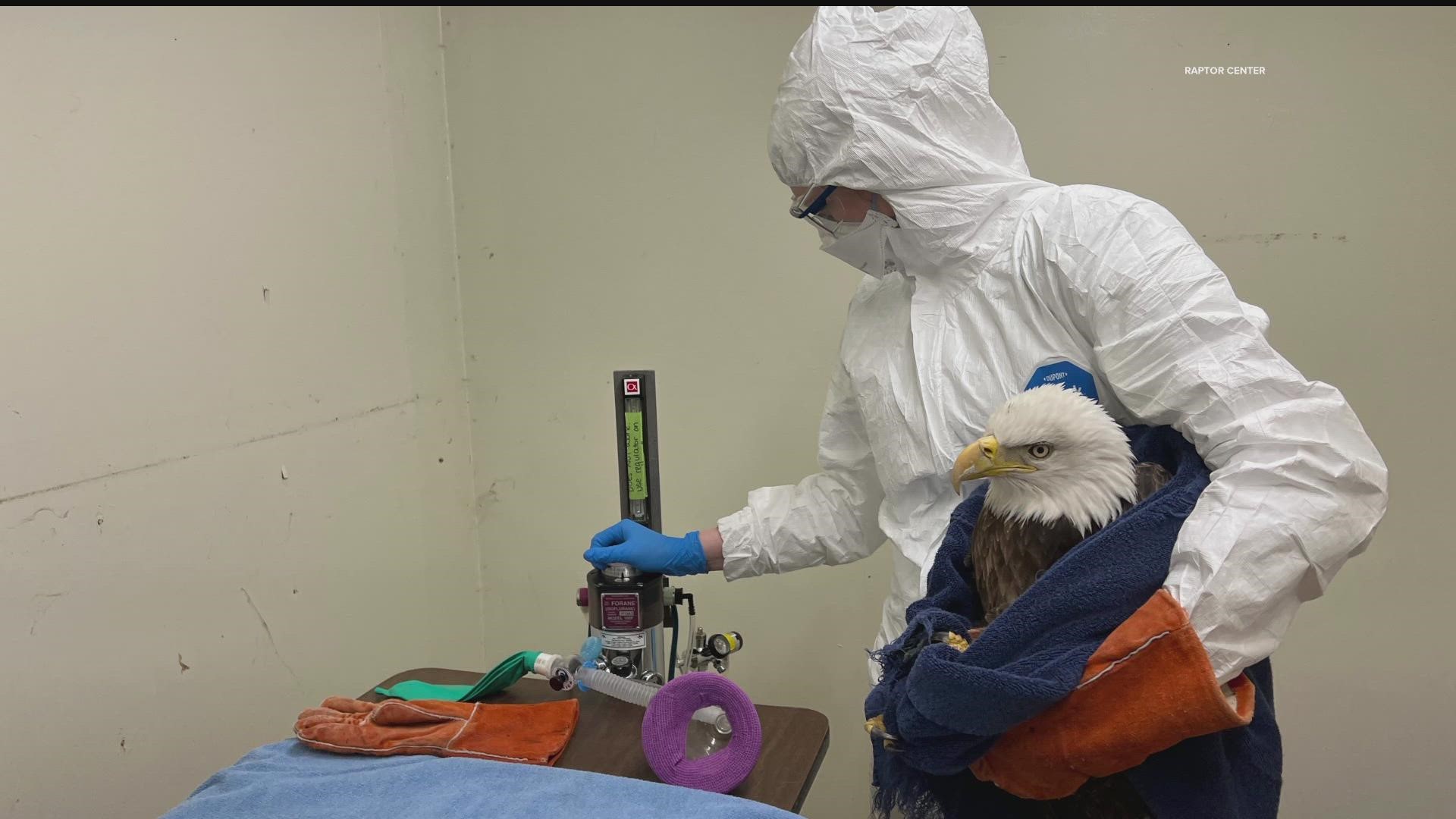ST PAUL, Minnesota — The recent avian flu outbreak is having an impact on The Raptor Center in St. Paul, from temporarily suspending public tours to creating a triage area for incoming patients.
"We've got birds that are coming in with really bad symptoms; they're seizing, they're really neurologic, they're unable to stand. We're also seeing more birds that are dying before they can get to us right now," said Victoria Hall, executive director of The Raptor Center.
The Raptor Center has had to create a triage area in a separate building. New birds must test negative twice before being moved to the hospital.
"Avian influenza is extremely fatal to raptors. So 90% to 100% will die from this H5N1 strain. So we really want to protect our hospital and the patients in it," Hall said.
The Raptor Center has temporarily suspended public tours and is only going off-site with their educational birds in indoor locations.
When staff and volunteers enter the center, they replace their street shoes with clean shoes before walking across a sanitizing floor mat and using hand sanitizer. In the triage area, workers are in full PPE.
"We... know that people can bring the virus in on their hands, on their clothes, on their shoes," Hall said.
It's a much different picture for The Raptor Center compared to 2015.
"In 2015 we had a lot of cases of highly pathogenic avian influenza, but it was mostly in commercial poultry operations. We did not see this level in wildlife. We didn't have a single case here at The Raptor Center and we've already seen seven in our first couple of days of testing here. So very, very different and we're seeing a lot more illness and suffering in these guys when they catch it," Hall said.
Many wildlife rehabilitation centers have had to limit the kinds of birds they take in. The Raptor Center has not had to make these changes because of their triage area.
"This is coming at a huge personnel and financial cost but we really want to make sure that we try to be able to receive birds as much as possible," Hall said.
The center does fundraising for most of its budget and Hall said donations go straight to the birds during this challenging time.
There are things the public can do to help limit the spread of HPAI. Hall said you do not want to encourage birds to come together. Hall recommends taking any bird feeders down for the time being, especially because it's warming up and birds can find good food in other places.
"We don't know a whole lot about HPAI with songbirds — so ones that typically visit your feeder — but it's never a bad idea right now to not encourage them to get together," Hall said.
Keep an eye out for any birds that have died or are in need of help. Do not touch the bird. Instead, call a place like The Raptor Center or the Minnesota Department of Natural Resources first and they will help guide you on what to do next.
Keep backyard chickens enclosed and separated from wildlife. Hall recommends placing mesh or tarps on the outside of the coop.
"It's terrible. It's rough on the staff but we have an amazing team here at The Raptor Center that's committed to trying to help whatever birds we can during this," Hall said. "But it's going to be a very, very rough spring for rehabbers."
You can find more information on HPAI on The Raptor Center's website.
Central Minnesota Wildlife Rehabilitation is also posting updates on the outbreak in Minnesota on its Facebook page.
Watch more local news:
Watch the latest local news from the Twin Cities in our YouTube playlist:

